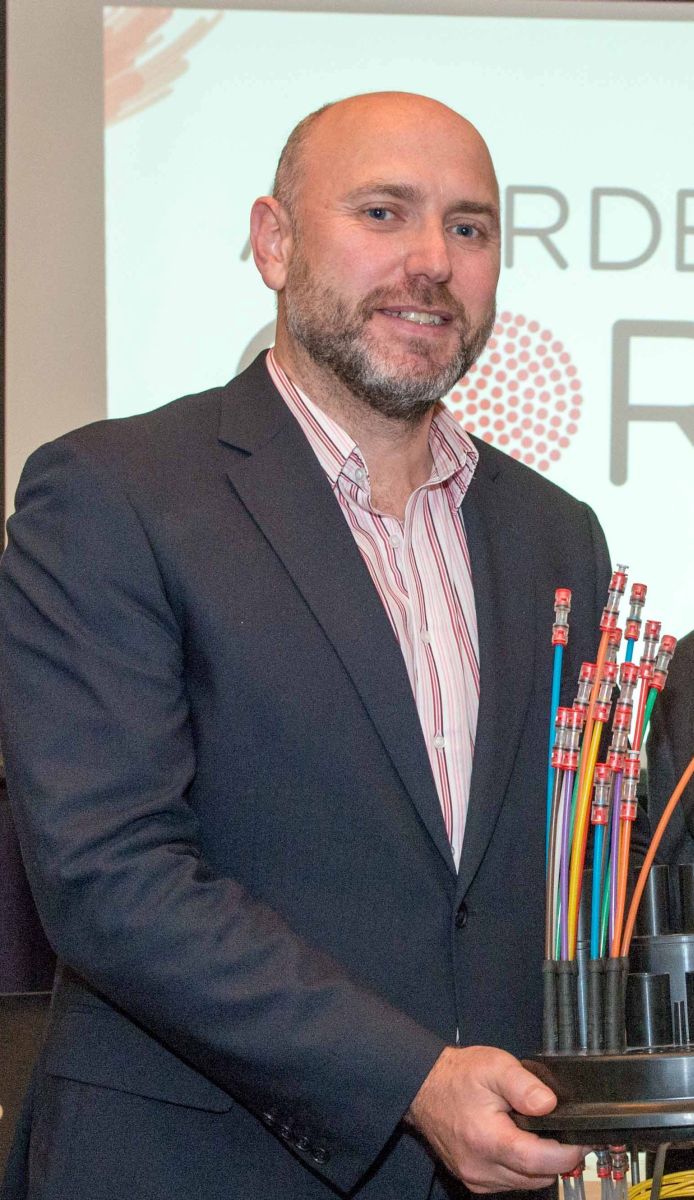 With thanks to Esther Green, Senior Account Executive, Tricker PR
With thanks to Esther Green, Senior Account Executive, Tricker PR
As small businesses look to compete, grow and develop in today’s fast-paced digital world, they need first-class connectivity that will support their business needs today and far in to the future, one of Scotland’s leading experts in digital industry has said.
According to Graeme Gordon (pictured), Chief Exec of Aberdeen-headquartered IFB – a leading managed service and data network provider – keeping apace of the digital transformation will ensure firms are not overtaken by competitors, giving opportunities to increase productivity and future-proof their businesses as the thirst for greater bandwidth continues to grow.
“Digital technology is developing at rapid speeds, and although small businesses may find it hard to keep up, we’re constantly working on new solutions to ensure all businesses, regardless of size, can stay ahead and have access to the best digital connectivity for their business and to suit their needs,” comments Graeme.
“There is now a new wave of full fibre digital infrastructure available in Aberdeen and Edinburgh which provides superior connectivity speeds, and opens up greater opportunities for businesses. World-class connectivity is the key to success for running any business in the digital age. That’s why we’re constantly striving to meet businesses’ digital needs now and for decades to come.”
Powered by this new full fibre infrastructure, IFB Ultrafast offers lightning speeds to support businesses and help them grow and take up new opportunities that the digital economy offers. It’s a platform for small and medium enterprises (SMEs) – the backbone of Scotland’s economy – to be part of the latest tech transformation with connectivity that is fast, reliable and fit for purpose, as speeds and connectivity take on even more relevance to the way business is done.
An increasing number of everyday business services and applications are now online and used as a matter of routine, these cover banking, accounting, sales tools, customer management systems, voice telephony and critical data backup and recovery systems – all of which need to be accessed reliably and securely to support the day-to-day workings of all modern businesses.
Graeme adds:
“Connectivity is at the heart of how all businesses operate and the next stage has arrived. This state-of-the-art full fibre digital infrastructure provides blistering connectivity speeds to support SMEs now and moving forward.”
The ultrafast network is delivered by IFB and powered by CityFibre in Aberdeen and Edinburgh – two of Scotland’s ‘Gigabit Cities’. It is being hailed as an affordable independent network offering superior speeds that leads to increased efficiency and productivity by dramatically accelerating the digital capabilities of business, providing quick data transfers between locations for backup and recovery.
To find out more call 0845 270 2101 or email geton@ifb.net
Aberdeen-based IFB is one of Scotland’s leading managed service and data network providers. For over 20 years IFB has been providing critical connectivity and ICT services to the UK market place. Its key markets include the demanding on and offshore oil and gas sector, professional services and public and third sector. It designs, deploys, manages and supports key services including Cloud, Backup and Recovery, Internet Access, Networks, Hosting, Workplace Recovery and Telecoms through national, multi-Gbit/s network that links Aberdeen, Edinburgh and London points of presence.
IFB can be contacted on 0845 270 2101 or geton@ifb.net. More about the company can be found at www.ifb.net
CityFibre is the UK’s builder of Gigabit Cities and the national alternative provider of wholesale fibre network infrastructure. It has major metro duct and fibre footprints in 42 cities across the UK and a national long distance network that connects these cities to major data-centres across the UK and to key peering points in London.
The company has an extensive customer base spanning service integrators, enterprise and consumer service providers and mobile operators. Providing a portfolio of active and dark fibre services, CityFibre’s networks address 28,000 public sites, 7,800 mobile masts, 280,000 businesses and 4 million homes.
CityFibre is based in London, United Kingdom, and its shares trade on the AIM Market of the London Stock Exchange (AIM: CITY).
- Comments enabled – see comments box below. Note, all comments will be moderated.

 Construction work has begun on a £16 million student accommodation development in Aberdeen.
Construction work has begun on a £16 million student accommodation development in Aberdeen.





